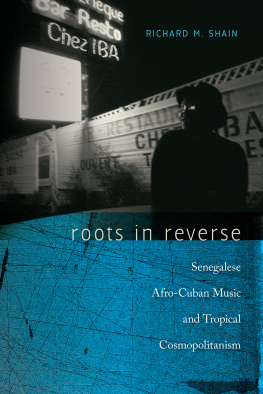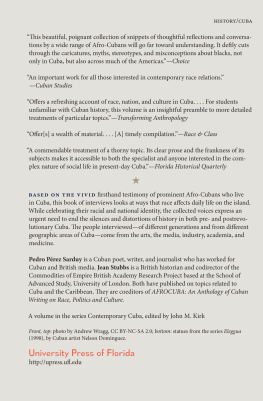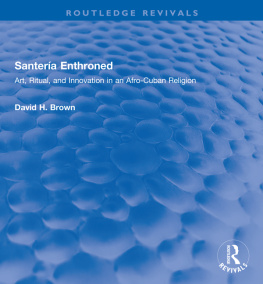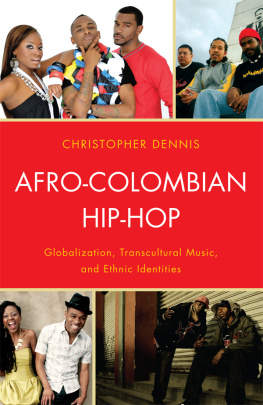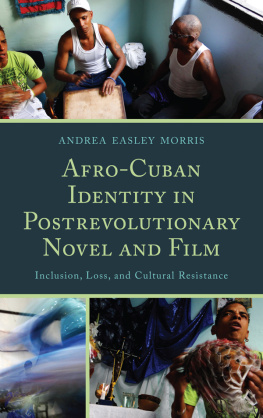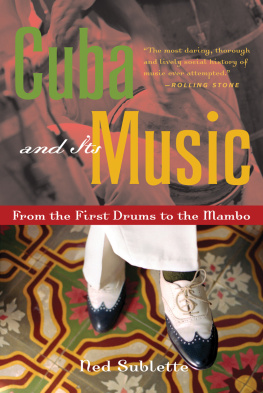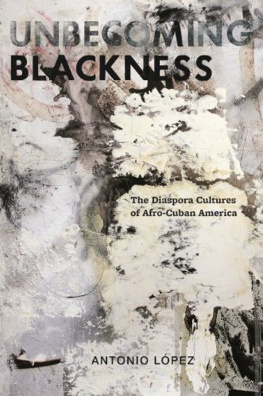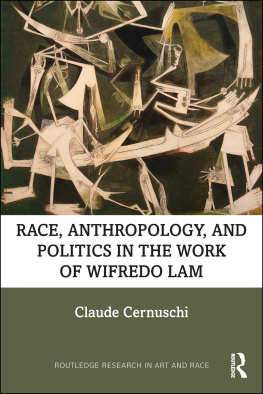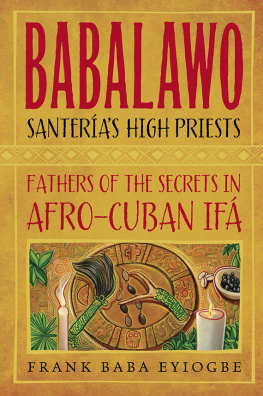
Roots in Reverse
Richard M. Shain
ROOTS IN REVERSE
Senegalese Afro-Cuban Music and Tropical Cosmopolitanism
Wesleyan University PressMiddletown, Connecticut
Wesleyan University Press
Middletown CT 06459
www.wesleyan.edu/wespress
All rights reserved
Manufactured in the United States of America
Designed by Mindy Basinger Hill
Typeset in Minion Pro
The Publisher gratefully acknowledges the support of the AMS 75 PAYS Endowment of the American Musicological Society, funded in part by the National Endowment for the Humanities and the Andrew W. Mellon Foundation
Library of Congress Cataloging-in-Publication Data
Names: Shain, Richard M. (Richard Matthew), 1949 author.
Title: Roots in reverse : Senegalese Afro-Cuban music and tropical cosmopolitanism / Richard M. Shain.
Description: Middletown, Connecticut : Wesleyan University Press, 2018.
Series: Music/Culture | Includes bibliographical references and index.
Identifiers: LCCN 2018023906 (print) | LCCN 2018025256 (ebook) | ISBN 9780819577108 (ebook) | ISBN 9780819577085 (cloth : alk. paper) | ISBN 9780819577092 (pbk. : alk. paper)
Subjects: LCSH: Popular musicSenegalHistory and criticism. | Popular musicSenegalCuban influences. | Popular music
Social aspectsSenegalHistory.
Classification: LCC ML3503.S38 (ebook) | LCC ML3503.S38 S53 2018 (print) | DDC 780.89/96972910663dc23
LC record available at https://lccn.loc.gov/2018023906
5 4 3 2 1
Cover image: Mapath James Gadiaga outside Chez Iba. Photograph by Djibril Sy. Used by permission. Blue texture: Pablo631, istockphoto
FOR WOODIE BROUN
19182001
You recall most often
[the] people who were kind to you.
Remember Me | Heywood Hale Broun
Son is the most perfect thing for entertaining the soul.
Ignacio Pieiro, founder of Septeto Nacional
Cest trs simple On danse.
Luambo Franco Makiadi, Cooperation
It stays fresh as long as we catch the pattern.
Baloji, Karibu Ya Bintou
CONTENTS
ACKNOWLEDGMENTS
This book has its origins in a presentation I gave to the Cuban Student Association at Rutgers UniversityNewark in 1994. The attendees enthusiastic response inspired me to take my inchoate ideas and mold them into something more substantial. As I did so, I realized I owed a great debt to my intellectual fathers, Robert Christgau and the late John Storm Roberts. I never met either man, but they both have had a significant impact on my life and my current research. As a teenager, I discovered both Latin and African music through Robert Christgaus reviews in the Village Voice. Many years later John Storm Roberts inimitable catalogs for his Original Music tutored me in the finer points of global musical traditions. A number of phone conversations with him furthered my training, and his books and cassettes were vital in my intellectual growth.
I would like to thank the provosts and the vice presidents of academic affairs at Philadelphia University for their support over the years, allowing me to attend numerous conferences on three continents at which I was able to present my research. Many of these presentations enabled me to deepen my thinking about Afro-Cuban music. I especially would like to thank Lee Cassanelli and Ali Dinar at the University of Pennsylvania; the members of the Puerto Rican Studies Association and the Afro-Latino Research Associations; EHESS in Paris; Richard Fardon and Graham Furniss of the School of Oriental and African Studies at the University of London; and Ousmane Sene and Omar Ndongo of the West African Research Centre in Dakar for their astute commentaries on my work.
I am grateful to three European colleagues who played a significant role in helping me complete my research. Hauke Dorsch, the director of the African Music Archives at the Johannes Gutenberg University in Mainz, Germany, literally gave me the key to the extensive offerings of this outstanding collection. Karin Barbers editing of an article I published in Africa was so scrupulous and insightful, it necessitated my rethinking important parts of my arguments. Denis-Constant Martin at the University of Bordeaux has provided years of intellectual camaraderie and stimulation. He has clarified a number of issues for me through our conversations and his own research on South African music.
In the United States, many colleagues have made this a better book. Ariana Reguant Hernandez of EthnoCuba and Cuban Counterpoints has championed my work, not least by reading some of my chapters and making valuable suggestions. Charles Ambler also commented on my work with his characteristic acuity. Salvador Mercado has patiently tutored me on the nuances of Puerto Rico culture. Jean Hay commissioned me to write my Roots in Reverse article and offered much needed encouragement in the early stages of this books development. Bob W. White pushed me to think more rigorously about my work when I was contributing a chapter to his edited collected Music and Globalization. Tsitsi Jaji alerted me to the significance of Bing magazine. Robin Moore supported my work through its many stages. Eric Charry, the eminent scholar of Mande music, has improved this book in many ways, especially through his cogent comments as an external reader. Indeed, the ethnomusicology academic community has welcomed this disciplinary interloper and has been exemplary in accepting this work on its own terms while always helping to better it. An example of this intellectual generosity is the extremely constructive comments I received from my other, anonymous reader, for which I am grateful. Selma Cohen was invaluable in addressing some technical issues with my manuscript and in many other ways as well. I would like to express my thanks to Ken Braun of Sterns Music. Ken is a legendary good guy in the world music scene. He opened many doors for me when I was a neophyte researcher in this field and always has been available to help. He was willing to read my work and correct errors of fact and interpretation.

My gratitude to the Fulbright Program knows no bounds. A Fulbright dissertation grant financed my dissertation research in Central Nigeria, and another grant in 20022003 made it possible for me to spend a year teaching and doing research in Dakar. Those of us who do African cultural history have few potential sponsors. Without a Fulbright grant, it would have been impossible for me to undertake this project.
Indeed, I completed most of my research for this book when I was a Fulbright professor at Universit Cheikh Anta Diop in Dakar in 20022003. Professor Mamadou Gaye, then head of the English Department, made certain that I had a productive and memorable year. The entire department was welcoming, and I always will remember the intellectual exchanges I had with my colleagues there, especially Professor Omar Ndongo. Professor Mamadou Kandji was doyen of the Facult des Lettres et Sciences Humaines during my time at the university. He worked closely with Professor Gaye to ensure that I had a marvelous year as a Fulbrighter. He has become a good friend, although I have no hope of ever equaling his scholarly productivity!
A number of individuals were helpful to me in Dakar. I owe special thanks to Ibru Iba, proprietor of Chez Iba, and his staff for the many unforgettable evenings I spent there. Aminata Sy, then of Centre Baobab, gently oriented me toward Senegalese culture during my first months in Dakar. Alioune Juan Carlos Diop invited me to be a guest on his RTS television show several times and graciously accommodated me at his house in Thiaroye. He also gave me rare footage of the first Cuban tour by Senegalese Afro-Cuban musicians. I spent countless enjoyable hours in Sacr Coeur with Antoine Dos Reis, who connected me with Dakarois active in the Afro-Cuban scene and the Senegal-Cuba Friendship Association. My thanks to him. The celebrated impresario Daniel Cuxac gave me many computer discs from his personal archive of Cuban music and shared his inexhaustible knowledge of Cuban and Senegalese music. The late famous record producer Ibrahima Sylla permitted me to attend two Africando recording sessions and spared time from his frenetic schedule to let me interview him twice. The late Cheikh Charles Sow, author and librarian at the West African Research Centre, directed me to many essential sources for my work. Judy Dusku and Lew Shaw, the directors of the Dakar campus of Suffolk University, provided me with a luxurious second Dakar home, enabling me to extend my period of research. Finally, the friendship and hospitality of John and Papu McIntire sustained my family and I during our year in Dakar and beyond, for which we remain grateful.
Next page
